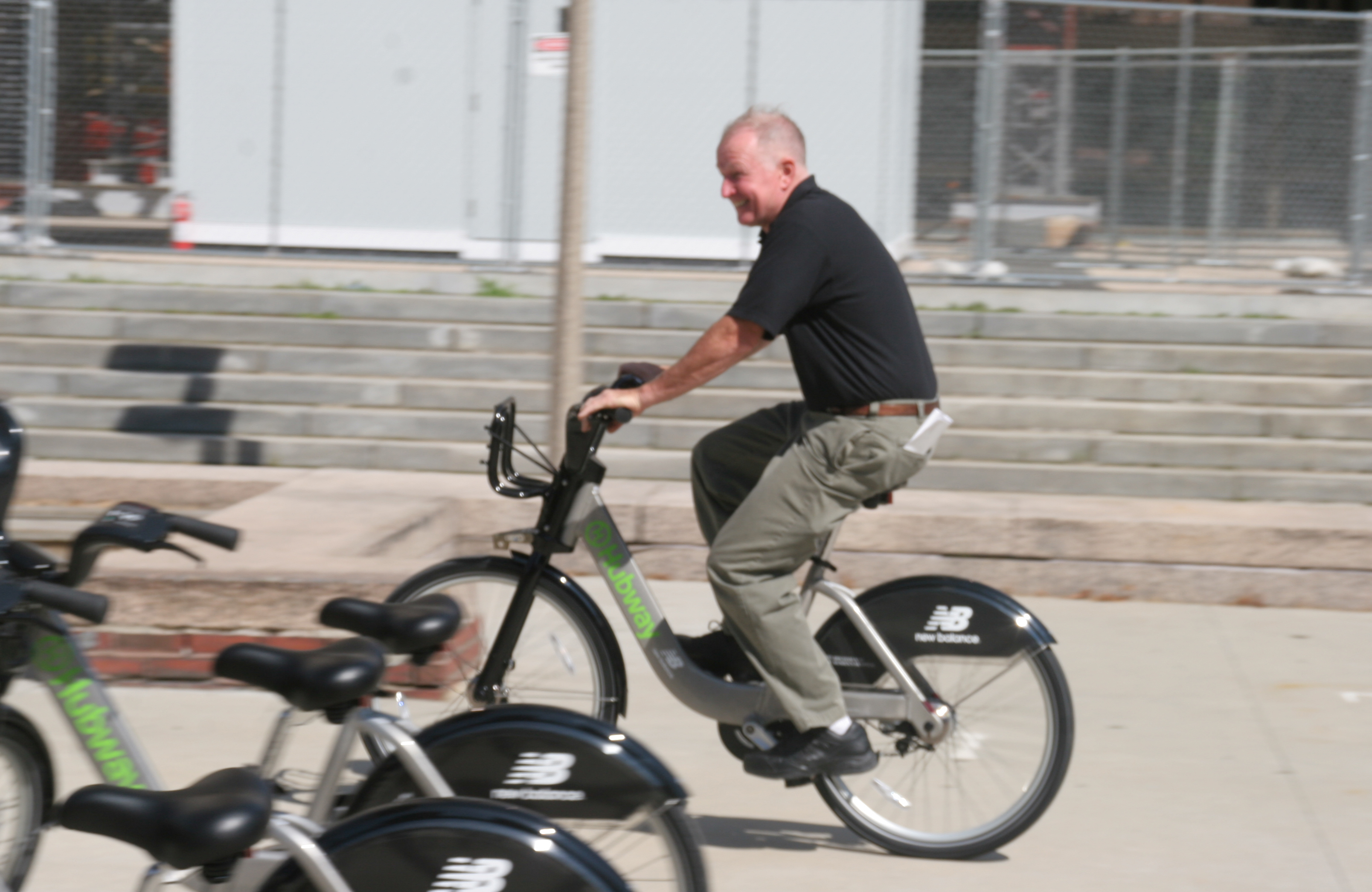 |
| bostonbiker.org...hubway-guy |
That is the point, zero problems despite a low helmet usage statistic. It is believed that typical users are folks that are likely to take less risks, and certainly they are traveling at a much slower speed (these are big and heavy 3 speeds, you cant get going to terribly fast on them). On the flip side they may be less use to the traffic laws especially if they use to walk and now use the bikes, and they may be from other countries where the laws for bicycle are significantly different.
Lets get back to the article, a good idea for sure, but so far it would not matter if more folks were wearing helmets, there were no problems. Now from Montreal where the system is much more robust and they have better infrastructure, there have occasionally been issues and there are a couple reports of doctors stating the need for the city to fund some type of vending machine (such as this) or partner with shops for discounted helmets (what Hubway does currently). However, they have provided little information other than they see more cyclists in the emergency room for injuries. When pressed there seems to be little evidence of injuries that could have been prevented with use of a helmet. This article (in french) talks about a crash that while serious, would not have been less serious for the bixi user if she were wearing a helmet. Most injuries were in her legs in this case, and it was the fault of a motorist running a red light that was the problem, not the bixi user. It ends with a call for more and safer infrastructure, which is the appropriate response. (another blog entry in English with a couple different articles linked)
However the one thing we do know is that more bikes on the road means; a lower injury rate, the more people biking the safer everybody is. We also know the health benefits of cycling (even if they breath in more pollution than other users) are a net benefit. These two elements have been studied quite a bit and the data is there proving that both benefits are true. Helmet usage is really a bit of a mixed bag, especially since they are only good in certain crashes and in very specific types they can potentially cause more injuries (rotational specifically).
In conclusion, good invention that will be beneficial in areas with mandatory helmet laws (which btw have a huge negative impact on bike share, a new study for Sydney, AU notes that 22% of folks surveyed would ride or ride more often without the mandatory helmet law, and bikeshare has struggled to get off the ground with successes everywhere else) and could be beneficial to folks that do not feel safe using a bike without a helmet. If it gets somebody on a bike good.
 |
| copenhagenize.com...motoring-helmets |
I do not use a helmet when I am using bikeshare, they simply do not go together at all. In Montreal or in Boston (the two systems I have used). I do wear one while on my personal European style city bike (Breezer uptown 8), but mainly that is out of professionalism since I work for the City of Cambridge in the Environment and Transportation division, and I could see the news now... I also tend to travel a bit faster on my personal bike.
Bikeshare and helmets do not go together and while they should be available, the top cycling countries and cities never have mandatory laws nor do they have high helmet usage. Despite what it may seem, people in those countries are not dying in droves or have massive head injuries because of the lack of helmets (although there is a small percentage of older Dutch that have issues with head injuries due to a variety of reasons). It is safe to bicycle in Denmark, the Netherlands, and Japan because of the built infrastructure.
 |
| Something a little more like this. |








No comments:
Post a Comment